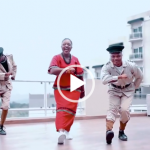Safari in Malawi: the miracle of Majete
Published on March 1, 2013 at 8:36 AM by FACE OF MALAWI
In Malawi, the Big Five are back at a wildlife park rescued from the brink – and a new safari lodge makes a perfect base for exploring it.

On his expeditions through Africa, the explorer and missionary David Livingstone took “salted provisions” but wasted no chance to shoot game for fresh meat. In June 1863, he was exploring the Shire River, a tributary of the Zambezi, when he came across an “abundance” of buffalo.
Sending for his rifle, he stalked the herd “with intense eagerness for a fat beefsteak” – but the buffalo got away. Nearly 150 years later I was crouched in almost exactly the same spot, watching another abundance of buffalo as it drank at a water hole in a blur of dust and flies.
It was a heartening sight – all that tonnage of flesh and blood, yet barely a sound save the odd snort – but a decade ago you wouldn’t have seen it. This is Majete Wildlife Reserve, in Malawi, and from the Eighties it was systematically poached until little game was left bar a few duiker (small antelope).
The year 2013 is set to be a notable one for Malawi, the sliver of land-and-lake wedged between Zambia, Tanzania and Mozambique in south-east Africa. Not only is it the bicentenary – on March 19 – of the birth of David Livingstone, whose associations with Malawi run deep, but in Majete conservationists have achieved something of a miracle that is only just coming to the attention of the wider world.

Majete Wildlife Reserve is a protected area of 270 square miles of woodland and savannah in the Lower Shire Valley, a two-hour drive from Malawi’s second city, Blantyre. It has been a reserve since 1955 but by 2002 was a wildlife sanctuary in name only. “It was a park on paper – but it wasn’t there,” said Patrizio Ndadzela, the project manager of African Parks Network (APN), the organisation that has transformed Majete. “How can you have a park when people can do what they want?”
The nature and extent of those uncontrolled activities are made plain at the heritage centre, by the entrance to the reserve. On display are gin traps used to catch buffalo and young elephant, and a muzzle loader, wrapped in lucky bracelets, that was confiscated from a poacher.
Poaching was rampant – the last elephant had been killed in 1992 – as were logging and charcoal burning. In 2003, APN, a non-profit organisation that operates in eight African countries, entered into a public-private partnership with the Malawian government to transform Majete’s fortunes.
“It was like Noah’s Ark,” said Patrizio Ndadzela. “We had to start from scratch.”
This July marks the 10th anniversary of APN’s involvement. Since 2003, more than 100 miles of fencing has been erected and the perimeter is now patrolled “around the clock”. Infrastructure has been improved and educational and commercial programmes set up to benefit the 130,000 people who live around the reserve.
The real sundowner moment – when Majete raised a glass to a job well done – came last August with the reintroduction of lions (four were brought from South Africa; one died in transit). The release of these apex predators marked the symbolic completion of a programme that has seen some 2,500 animals reintroduced to the reserve.

“It has taken us nine years to establish the Big Five,” said Mr Ndadzela. And now they’re in place, tourism will be a key part of Majete’s future. When the reserve reopened in 2006 there were 315 visitors. By 2011 the figure had increased to more than 4,500 (foreign day-visitors are currently charged an entrance fee of US$20/£13) and it is likely to rise even more steeply following the opening of a luxury safari lodge.
Mkulumadzi, run by Robin Pope Safaris, is named after the river that flows into the Shire at the point where the lodge was built. On October 31 1863, Livingstone camped at precisely this spot: “… it thundered heavily, but… we erected no shelter,” he recorded.
Nowadays the facilities are less spartan. Meals are served on a deck above the river, to the euphonious tuba-toots of hippos, and there are eight luxurious riverside bush chalets, shaded by wild mango trees.
Beyond the rope bridge across the Mkulumadzi that forms a dramatic entrance to the lodge, 30 square miles of the reserve are set aside for the exclusive enjoyment of guests on vehicle and foot safaris (for this concession the lodge pays the reserve a percentage of its gross revenue).
It was on an evening drive that we watched the buffalo herd, from a hide above a waterhole. As more and more beasts gathered, our guide, Samuel, handed out G & Ts and chicken kebabs, and I thought, with a pang of guilt, of Livingstone’s yearning for a decent steak.
When he passed through here Livingstone had been hoping to sail all the way up the Shire to the “great lake” (Lake Malawi) he had heard about in the north. But his way was blocked by a series of rapids and waterfalls he named the Murchison Cataracts. Nowadays they are called the Kapichira Falls, and they start a short distance south of Mkulumadzi.

Above them the river is broad, shallow and rocky – and vivid with bird life, as we discovered on a morning boat ride. Samuel almost fell out of the boat photographing the elusive African finfoot, a small aquatic bird that bobbed across the choppy waters with Dunkirk-like pluck.
We watched a pair of Egyptian geese guard their six chicks against baboons by means of a ceaseless series of charades and feints. We ticked off many graceful waterfowl, and had front-row seats as elephants tore into lantana on a midstream island.
At one point Samuel cut the outboard motor and said, “Listen to the sound of wilderness.” And we listened to the lapping of water against the hull, the muted hiss of rapids, bird calls – the soundtrack Livingstone had heard when slavery, not poaching, was the bane of the Africa.
It was an uplifting morning but as we drove back to the lodge, through bush teeming with waterbuck, eland and impala, we were reminded that the conservation battle is never won. We passed two minibuses full of Chinese men. Two minutes later, Samuel stopped to pick up a vodka bottle, thrown from the vehicles we’d just passed. Another two minutes and he stopped again to pick up a cigarette packet. Maybe the Chinese were tourists who didn’t know how to behave. Maybe they had more sinister intent.

At a time when the poaching of ivory and rhino horn – driven by demand in China and the Far East – is reaching unprecedented levels in parts of Africa, Majete is a heart-warming story. But the continent Livingstone revealed to the Western world has never been more vulnerable.
When to go
May to October
Flying time and time difference
12½ hrs from the UK (plus stopover time in Johannesburg, Nairobi or Addis Ababa). GMT plus two hours.
Getting there
South African Airways (flysaa.com) via Johannesburg, Kenya Airways (kenya-airways.com) via Nairobi, Ethiopian Airlines (ethiopianairlines.com) via Addis Ababa.
Where to stay and eat
Safari packages (with Expert Africa, above) are on full-board basis but if you want to stay in Blantyre (convenient for Majete Wildlife Reserve), the old colonial Ryall’s (proteahotels.com/protea-hotel-ryalls.html) is comfortable and efficient, and has a restaurant, 21 Grill, that serves fillet steak David Livingstone would have died for, costing less than a tenner.
Tips
- Pack binoculars, sunscreen and a hat.
- Keep hydrated.
- If you want to take photographs in villages, do it as part of a transaction, by buying handicrafts or produce in return.
- Schools are chronically short of materials – see the “Pack for a purpose” link at tongole.com (click the Foundation tab) for ideas on what to bring.
- Do not give money to children.
- Avoid the barbecued field mice, which are on sale at road sides.
Health advice
Malawi is malarial around Lake Malawi and the Shire Valley, the risk being greatest from November to April – see your GP.
Currency
The Malawian kwacha (Mk) – currently around Mk575 to £1.
Further information
Malawi: The Bradt Travel Guide (£15.99) is good on background.
For all the events marking the David Livingstone bicentenary, visit davidlivingstone200.org
For general travel information, see malawitourism.com
- Nigel Richardson’s trip to Malawi was arranged by Expert Africa (020 8232 9777, www.expertafrica.com).
- An eight-night trip, spending two nights at Mkulumadzi (www.mkulumadzi.com), two nights at Pumulani (www.pumulani.com: another Robin Pope Safaris lodge, on the shores of Lake Malawi) and two nights at Tongole Wilderness Lodge (www.tongole.com) costs from £2,981 per person, sharing, including international flights, transfers, all meals, most drinks and game viewing.


